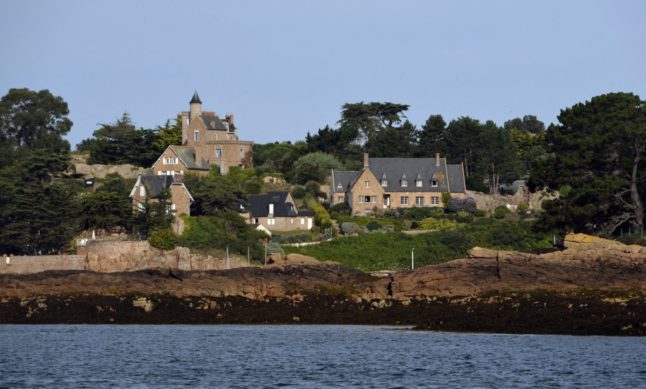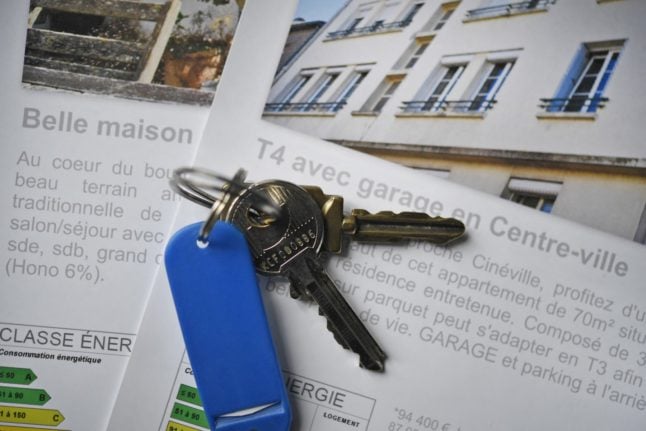Overall, one in 10 properties in France is used as a second home, with the vast majority having French owners. But the situation in areas that have a particularly high number of second homes has led to locals feeling shut out of the market.
France has so far largely escaped the ‘anti tourist’ protests seen in countries including Spain, but the high number of second homes is a regular source of tension.
The most recent campaign is in Brittany, where a petition has been launched to close down a popular website (Madeuxiememaison.fr, launched in 2021 by the Caisse d’épargne Bretagne – Pays de la Loire) advertising second homes.
The petition accused the website of encouraging people to purchase second homes while Brittany residents are unable to find affordable housing.
The left-wing political group, Union démocratique brétonne (UDB), launched the petition, writing that “Brittany does not lack housing. The truth is that hundreds of thousands of homes are empty nine months out of 12.”
Tifenn Siret, the spokesperson for UDP explained the petition to BFMTV. She said: “We are looking at an aggressive promotion [of second homes].
“The moment this website went up in 2021, there was a campaign to promote the site in newspapers and the media. We have several ‘housing shortage zones’ where people who work cannot live there.”
Another Brittany resident, Pauline from Finistère, told the French TV channel: “We are struggling to be able to buy homes in the area where we work.”
In response, Caisse d’épargne Bretagne – Pays de la Loire told BFMTV that “Out of 12,000 real estate projects in 2023, only 200 were for second homes, or 1.6 percent.
“We are not the ones creating the market, it’s the buyers who decide. Our role is to be facilitators, to support people.”
Other pushback against second homes
In recent months, second homes – notably those with their shutters closed (volets fermés) – have been targeted with graffiti and posters, BFMTV reported.
In July, a home in Trégunc (in the Finistère département) was sprayed with graffiti bearing the words “Besoin primaire, résidence secondaire” (Primary needs, secondary residence).
In March 2024, a car belonging to second homeowners in Névez (also in Finistère) was set on fire.
Some of these actions, including the burning of the car, have been organised by regionalist groups, such as the FLB (Front de libération de la Bretagne).
Another activist group, Douar Ha Frankis, which has particularly focused on limiting Airbnb rentals in the region, occupied a building used for Airbnb rentals in August, during the Inter-Celtic festival in Lorient, as well as placing flyers and posters on second homes.
The group told Franceinfo that they would like to see quotas put in place to limit the number of second homes in an area.
What is the second homes situation in Brittany?
The western French region has become more popular amongst second home owners and tourists in recent years, partly due to climate change which has left parts of southern France exceedingly hot in the summer.
READ MORE: Why more and more tourists are flocking to Brittany
According to Ouest France, second homes make up 13.3 percent of properties in the region, higher than the national average of 9.5 percent.
However, those numbers increase significantly when looking at coastal parts of the region and its islands. For example, the Îles du Ponant have closer to 60 percent of properties as second homes, and that number rises to 72 percent for the island of Bréhat.
Local residents have noticed that areas with large portions of second homes have also become more expensive.
In Carnac, a coastal town in the Morbihan, second homes represent 71 percent of properties, BFMTV reported. Meanwhile, property prices in Carnac are closer to €6,027 per square metre, in contrast to the average of €2,814 for the rest of the Morbihan département.
In Saint-Briac-sur-Mer, located in the Ile-et-Vilaine département, the share of second homes is 60 percent, and price per square metre has reached €6,237, compared to the département average of €2,900.
What about other parts of France?
There has been similar pushback in other parts of France, but it is worth noting that the vast majority – around 90 percent – of second homes in France have French owners, and there is no particular animus against foreigners who buy a second home in France.
In 2022, France’s then-finance minister Bruno Le Maire, who owns a second home in the Pays-Basque in south-west France, saw his property briefly occupied by activists.
They called for extra powers for local authorities to impose a surcharge on second homes, with the money going towards creating affordable housing for local people.
Meanwhile, second homes in Corsica, where as many as one in three properties are second homes, have increasingly become targets for arsonists, Le Monde reported.
READ MORE: Where in France are locals protesting about second-home owners?
Steps to rein in second homes?
Thousands of French communes are officially designated as ‘zones tendues’. Literally translated as ‘tense zone’ in this context, it means an area with a housing shortage.
To be officially designated by the government as a zone tendue, local authorities must be able to show that the area has a housing shortage, or that locals are priced out of the market.
If you own property in a zone tendue it could affect the property taxes you pay.
Areas with zone tendue status have the power to impose a surcharge on the taxe d’habitation on second-homes of up to 60 percent.
As for Airbnb, France imposes several restrictions on people who want to rent out their property via the holiday letting platform Airbnb.
There have also been calls to tighten these rules further, which could be included in the autumn legislative session in parliament, as they were put on hold due to the dissolution of parliament in June 2024.
READ MORE: Revealed: Where in France do foreigners buy second homes?



 Please whitelist us to continue reading.
Please whitelist us to continue reading.
Member comments